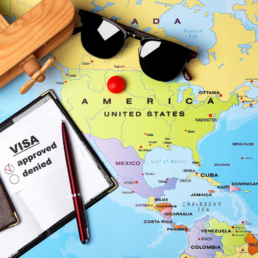Immigration for Health Care Workers
Foreign health care workers play a major role in the health care industry in the United States. Berardi Immigration Law represents many reputable health care organizations, as well as physicians, nurses, researchers, and other health care workers.
Our attorneys evaluate each client’s options and tailor a customized immigration approach. There are a variety of visa options available, depending on the client’s situation and circumstances.
April 3, 2025
Understanding H-1B Site Visits
March 20, 2025
COVID-19 Vaccination Requirement Update
February 12, 2025








